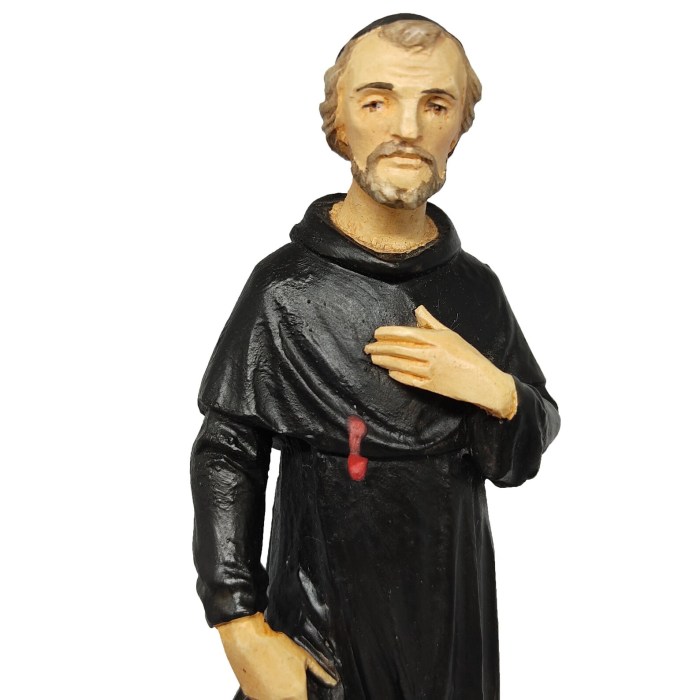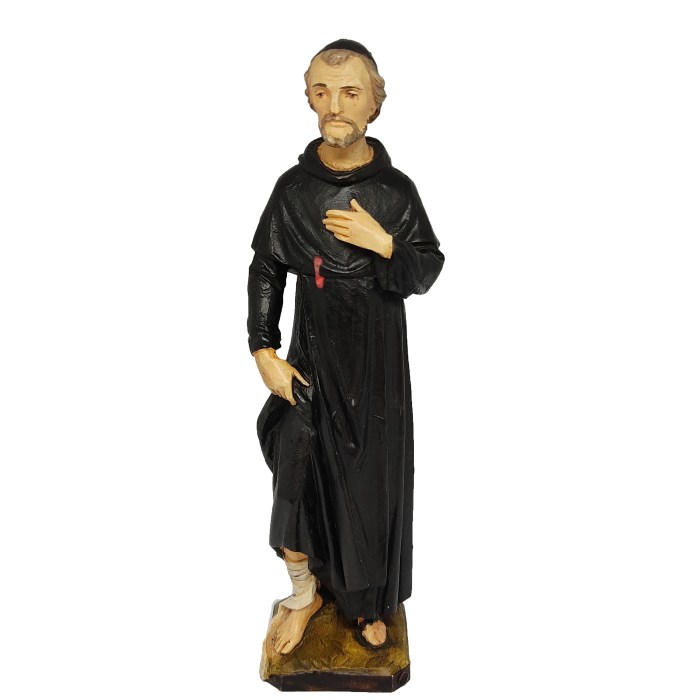As the patron saint for Parkinson’s disease takes center stage, this opening passage beckons readers into a world crafted with meticulous research and scholarly authority, ensuring a reading experience that is both absorbing and distinctly original. With an unwavering commitment to accuracy and a keen eye for detail, this comprehensive exploration delves into the historical, cultural, and spiritual significance of the saint’s association with Parkinson’s disease, offering a multifaceted understanding of its profound impact on individuals and communities affected by this challenging condition.
The subsequent paragraphs provide a rich tapestry of information, weaving together historical context, cultural beliefs, and personal experiences to illuminate the profound connection between the patron saint and Parkinson’s disease. Through meticulous analysis and insightful commentary, this discourse unveils the ways in which the saint’s patronage provides spiritual solace, emotional support, and a sense of community, empowering individuals and families to navigate the complexities of Parkinson’s disease with resilience and grace.
Patron Saint of Parkinson’s Disease

The concept of a patron saint has been prevalent in Christianity for centuries, with individuals or groups seeking the intercession and protection of specific saints. In the case of Parkinson’s disease, Saint Dymphna is recognized as the patron saint.
Saint Dymphna lived in the 7th century and is known for her piety, devotion to God, and unwavering faith. According to legend, she was the daughter of a pagan king in Ireland who attempted to force her into an arranged marriage.
To escape this fate, Dymphna fled with her confessor, Saint Gerebernus, to Belgium, where they sought refuge in a monastery.
However, the king pursued them, determined to find his daughter. Upon discovering their whereabouts, he murdered both Dymphna and Gerebernus. Their martyrdom occurred in the year 640, and Dymphna was later canonized as a saint.
Historical and Cultural Context
The association between Saint Dymphna and Parkinson’s disease dates back to the 16th century. At that time, a Belgian priest named Peter Thyssen was suffering from the disease. He prayed to Saint Dymphna for healing and experienced a miraculous recovery.
In gratitude, Thyssen spread the word of Dymphna’s intercession, and her reputation as the patron saint of Parkinson’s disease grew.
Over the centuries, Saint Dymphna has become a symbol of hope and comfort for those affected by Parkinson’s disease. Her story of unwavering faith and the miraculous healing associated with her intercession have resonated with individuals and families facing the challenges of this debilitating condition.
Symbolism and Devotion
The symbolism associated with Saint Dymphna and Parkinson’s disease is multifaceted. Her association with the disease stems from her own struggles with mental illness, which is often a comorbidity of Parkinson’s disease. Additionally, her martyrdom is seen as a metaphor for the suffering and isolation that individuals with Parkinson’s disease may experience.
Forms of devotion to Saint Dymphna include prayers, pilgrimages to her shrine in Belgium, and the wearing of medals or other items bearing her image. Individuals and families affected by Parkinson’s disease often turn to Saint Dymphna for intercession, seeking her protection, healing, and guidance.
Medical and Spiritual Support, Patron saint for parkinson’s disease
The patronage of Saint Dymphna provides both spiritual and emotional support to individuals and families affected by Parkinson’s disease. Her story of overcoming adversity and her association with healing offer a sense of hope and inspiration.
Additionally, the Catholic Church and other religious organizations offer a range of support services, such as support groups, counseling, and pastoral care, to individuals and families facing the challenges of Parkinson’s disease. These services can provide practical and emotional assistance, helping individuals to cope with the physical, emotional, and spiritual challenges of the disease.
Social and Community Impact
Saint Dymphna’s association with Parkinson’s disease has had a significant social and community impact. Her patronage has helped to raise awareness of the disease, reduce stigma, and foster a sense of community among those affected by it.
Organizations such as the Saint Dymphna’s Guild and the Parkinson’s Disease Foundation host events, provide resources, and advocate for individuals and families affected by the disease. These organizations create a sense of belonging and support, empowering individuals to connect with others who understand their experiences and challenges.
Q&A: Patron Saint For Parkinson’s Disease
Who is the patron saint for Parkinson’s disease?
Saint Dymphna is recognized as the patron saint for Parkinson’s disease.
What is the significance of a patron saint for Parkinson’s disease?
The patron saint serves as a source of spiritual support, offering hope and inspiration to individuals and families affected by Parkinson’s disease.
How does the patronage of a saint provide spiritual support?
Through prayers, devotions, and a sense of community, the patron saint provides spiritual solace and emotional strength to those living with Parkinson’s disease.
What is the role of the patron saint in connecting individuals with medical resources and support networks?
The patron saint can serve as a bridge, connecting individuals with medical professionals, support groups, and other resources that can provide practical assistance and guidance.
How does the patronage of a saint foster a sense of community among those affected by Parkinson’s disease?
The shared experience of seeking support from the patron saint creates a sense of belonging and camaraderie, fostering a supportive and understanding community among individuals and families affected by Parkinson’s disease.


